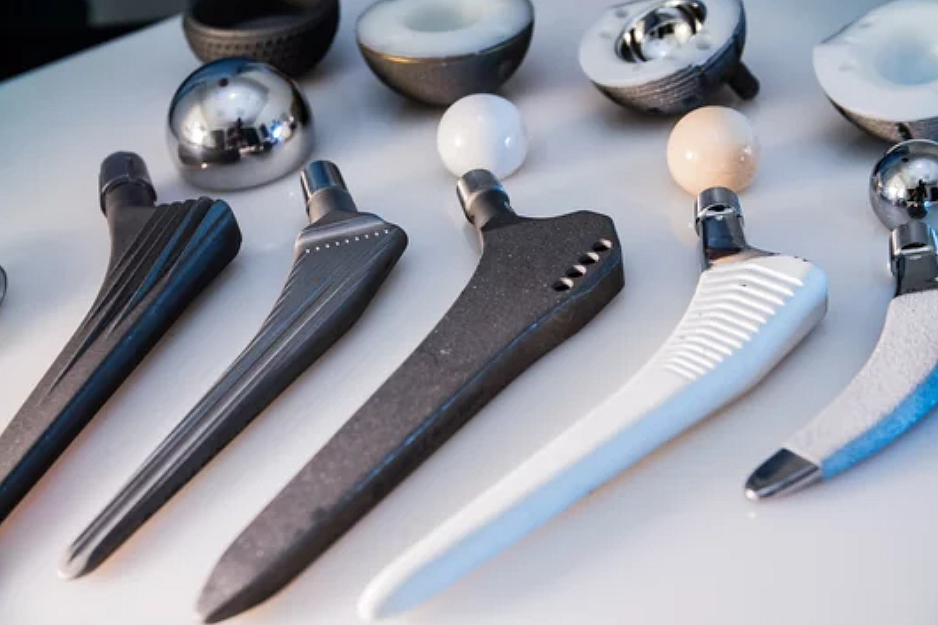Medical Device Parts Supplier: Metal Injection Molding (MIM) Parts
What Is Metal Injection Molding (MIM)
Metal Injection Molding (MIM) is a highly efficient and precise manufacturing process employed by companies like Neway to produce complex metal parts with exceptional accuracy. MIM combines the benefits of plastic injection molding and traditional powder metallurgy, offering a cost-effective solution for intricate component production.
In this process, finely powdered metal is mixed with a binder material to create a feedstock. This mixture is then injected into molds under high pressure, forming the desired shape. The next step involves:
Debinding.
Removing the binder from the molded parts.
Leaving a porous structure behind.
The final stage is sintering, a high-temperature process that fuses the metal particles, resulting in a dense and durable final product.
MIM's advantages lie in its ability to produce intricate designs, achieving tolerances as tight as ±0.1 mm. This method significantly reduces material waste compared to traditional manufacturing, enhancing cost-effectiveness. Moreover, the versatility of MIM allows for the production of components in various metals, including stainless steel, titanium, and more.
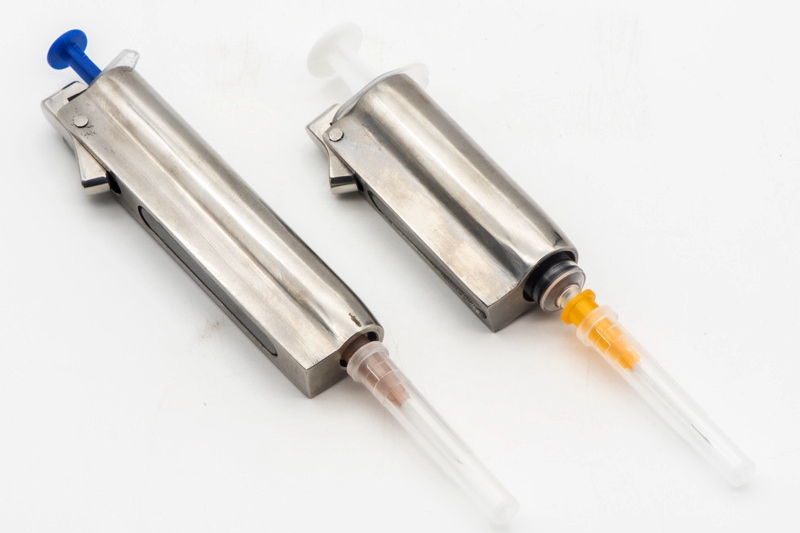
Importance of MIM In Medical Device Manufacturing
Metal Injection Molding (MIM) holds significant importance in the manufacturing of medical devices due to its ability to produce intricate and complex parts with exceptional precision, meeting the stringent requirements of the healthcare industry.
Design Freedom and Complex Geometry:
MIM allows for the production of intricate geometries, which are often essential in medical device components. It is particularly advantageous for devices like surgical instruments, where intricate shapes and features are critical for optimal performance.
MIM combines the characteristics of plastic injection molding technology and can produce highly complex metal parts. It is irreplaceable by other traditional crafts.
Biocompatible Material Options:
The medical field demands materials that are not only structurally sound but also biocompatible. MIM provides the flexibility to use various materials like stainless steel, titanium, and cobalt-chromium alloys, ensuring that the end products are safe for use within the human body without triggering adverse reactions.
Precision and Tight Tolerances:
Medical devices require exceptional precision to fulfill their intended functions accurately. MIM's ability to achieve tight tolerances as fine as ±0.1 mm ensures that components meet the exact specifications, contributing to medical devices' overall reliability and performance.
Cost-Efficiency in High Complexity:
While the medical industry demands high precision and complexity in design, it also necessitates cost-effective manufacturing solutions. MIM excels by reducing material waste, minimizing the need for secondary operations, and streamlining the production process. This efficiency is paramount in delivering cost-effective medical solutions without compromising quality.
Reduced Post-Processing and Shorter Lead Times:
MIM's ability to produce near-net-shape parts significantly reduces the need for extensive post-processing. It saves time and minimizes the risk of introducing errors during secondary operations. The result is shorter lead times, which is crucial in the fast-paced and dynamic medical device manufacturing field.
MIM Material Properties and Benefits
Metal Injection Molding (MIM) offers a range of material properties and benefits that make it particularly advantageous for medical device manufacturing, aligning well with Neway's commitment to providing cutting-edge solutions. Let's explore the specific material properties and benefits of MIM in the context of medical applications:
Biocompatible Material Selection:
MIM enables using materials with proven biocompatibility, such as 316L stainless steel, titanium alloys (Ti-6Al-4V), and cobalt-chromium alloys (CoCr). These materials comply with the stringent biocompatibility standards required for medical devices, ensuring patient safety and minimizing the risk of adverse reactions.
At the same time, MIM can process some special alloys, such as tungsten alloy and other materials with radiation shielding functions. They are used to make radiation-proof syringes for radioactive drugs. Other processes cannot replace it.
Mechanical Properties:
MIM-produced components exhibit excellent mechanical properties, including high tensile strength and hardness. It is crucial for medical applications where devices must withstand mechanical stresses, ensuring the longevity and reliability of implants, surgical instruments, and other critical components.
Corrosion Resistance:
The corrosion resistance of materials used in MIM, especially stainless steel and titanium alloys, is essential for medical devices that come into contact with bodily fluids. This property ensures the durability of components over time, reducing the risk of material degradation and enhancing the overall lifespan of medical devices.
Surface Finish and Aesthetics:
MIM parts exhibit a smooth surface finish directly from the molding process. This characteristic is advantageous for medical devices, not only from an aesthetic standpoint but also for functional reasons. A smooth surface minimizes the risk of bacterial adhesion, a critical consideration in healthcare settings.
Cost-Effective Production:
The efficiency of MIM in minimizing material waste and reducing the need for extensive post-processing contributes to cost-effectiveness. In the competitive landscape of medical device manufacturing, controlling costs while maintaining high-quality standards is paramount. MIM aligns with this need, allowing Neway to offer competitive solutions to its clients.
Multi-Material Integration:
MIM's versatility extends to integrating multiple materials into a single component. This capability is particularly beneficial for medical devices requiring a combination of material properties, such as flexibility, strength, and drug compatibility. Neway's proficiency in multi-material MIM enhances its ability to address diverse and complex medical device requirements.
Complex Geometries and Precision:
Metal injection molding combines the advantages of plastic injection molding and powder metallurgy and can produce metal parts with complex structures and carry out mass production. At the same time, the accuracy of MIM parts is also relatively high (+/-0.02mm). This feature reduces the time of secondary processing. Conducive to the mass production of small complex metal parts.
MIM's capability to produce complex geometries with tight tolerances is paramount in medical device manufacturing. For instance, in orthopedic implants, the intricate design of components is crucial for proper fit and functionality. MIM's precision contributes to the success of such applications.
Typical Applications of Medical MIM Parts
Metal Injection Molding (MIM) has found widespread applications in the medical field, providing solutions for producing intricate and high-precision components. Neway, as a forward-thinking manufacturer, incorporates MIM to address various challenges in medical device manufacturing. Here are some typical applications of MIM parts in the medical industry:
Orthopedic Implants:
Application: MIM is extensively used in producing orthopedic implants, such as hip and knee joint components.
Significance: The ability of MIM to create intricate and patient-specific designs ensures a precise fit, contributing to the success and longevity of orthopedic surgeries.
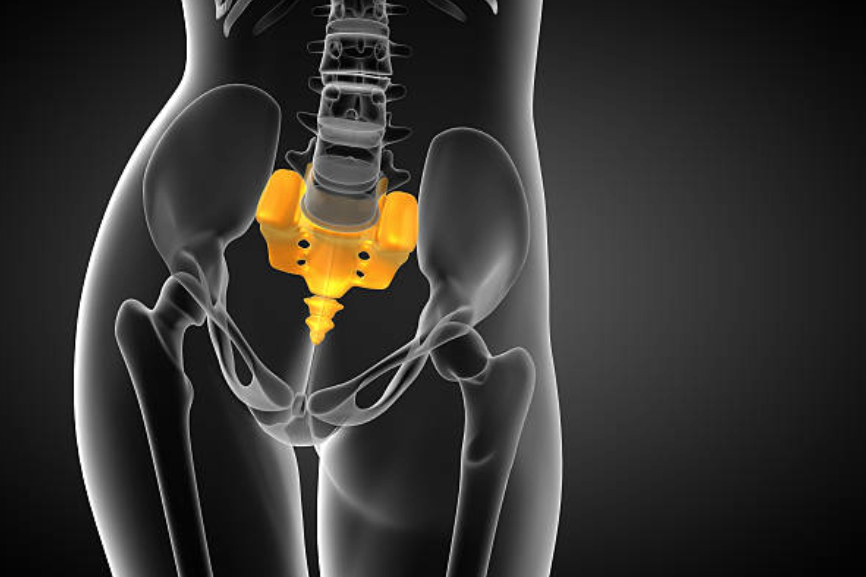
Metal Injection Molding (MIM) is widely utilized in the production of hip and knee joint components, offering exceptional advantages in terms of materials and performance. Commonly used materials include 316L stainless steel and titanium alloys such as Ti-6Al-4V, chosen for their excellent biocompatibility, corrosion resistance, and high mechanical strength. The MIM process enables the creation of intricate geometries with tight tolerances, which is crucial for achieving optimal fit and function in joint replacement applications.
The advantages of MIM in hip and knee joint component manufacturing extend to cost-effectiveness, as the process minimizes material waste and reduces the need for extensive post-processing. Additionally, the fine-grained microstructure achieved through MIM enhances the mechanical properties of the components, ensuring durability and longevity in orthopedic implants. Neway's expertise in leveraging MIM for these critical applications underscores its commitment to delivering high-quality, precision-engineered solutions for orthopedic surgeries, ultimately improving patient outcomes and quality of life.
Dental Components:
Application: MIM is employed for manufacturing dental components, including brackets and clasps used in orthodontic applications.
Significance: The high precision and biocompatibility of MIM materials are crucial in the dental industry, where customized and reliable components are essential for effective orthodontic treatments.
Metal Injection Molding (MIM) stands as a cornerstone in the fabrication of dental components, employing materials like 17-4 PH stainless steel and cobalt-chromium alloys due to their biocompatibility and mechanical properties. These materials offer exceptional corrosion resistance and strength, ensuring longevity in dental applications. MIM's ability to produce intricate shapes and fine features is pivotal in crafting brackets, clasps, and other orthodontic components, meeting the demanding precision requirements of the dental industry.
The advantages of MIM in dental component manufacturing extend beyond material properties to include cost-effectiveness and streamlined production. MIM minimizes material waste by creating near-net-shape parts, reducing the need for extensive machining or finishing. Additionally, the process enables the production of customized, patient-specific components, contributing to advancing dental treatments. Neway's expertise in leveraging MIM for dental applications underscores its commitment to providing high-quality, tailor-made solutions for orthodontic treatments, ensuring functionality and patient comfort in dental devices.
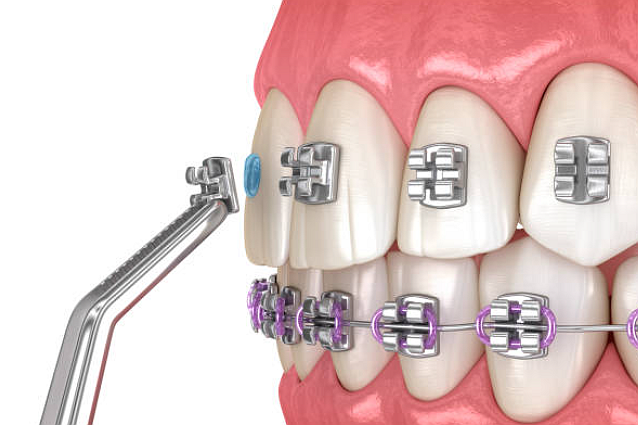
Surgical Instruments:
Application: MIM is used for producing surgical instruments such as forceps, scissors, and endoscopic tools.
Significance: The intricate designs and tight tolerances achievable with MIM ensure the reliability and precision of surgical instruments, contributing to the success of medical procedures.
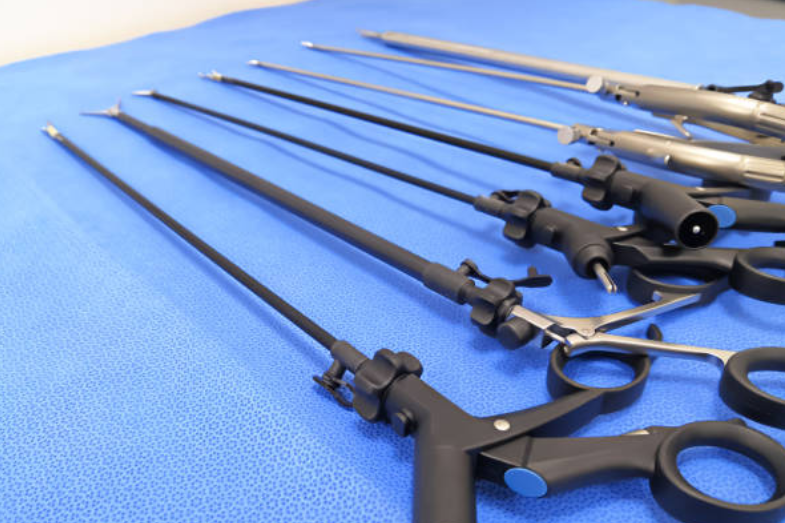
Metal Injection Molding (MIM) stands out in the production of forceps, scissors, and endoscopic tools, offering a cost-effective and exact manufacturing solution. MIM provides exceptional corrosion resistance for medical instruments using materials such as stainless steel (e.g., 17-4 PH or 316L). With tolerances as low as ±0.002 inches, MIM ensures the production of intricate and accurate tool geometries, contributing to enhanced surgical performance.
The advantages of MIM extend beyond material properties, encompassing efficient batch production. Neway, employing state-of-the-art MIM processes, achieves cycle times as short as 15 minutes per part, showcasing a remarkable efficiency boost. The resulting tools exhibit excellent mechanical properties, such as a tensile strength exceeding 85,000 psi, ensuring durability and reliability in critical medical applications.
Drug Delivery Systems:
Application: MIM is applied in producing components for drug delivery systems, including insulin pumps, Tungsten radiation protection syringes, and inhalers.
Significance: MIM's precision is crucial in manufacturing components that play a vital role in controlled and precise drug delivery, enhancing the effectiveness of treatment.
Metal Injection Molding (MIM) proves instrumental in crafting tungsten alloy radiation protection syringes, demonstrating Neway's commitment to precision and innovation in the medical field. Tungsten-heavy alloys, like 90W-7Ni-3Fe, provide the ideal density for radiation shielding, offering a cost-efficient alternative to traditional materials. MIM's exceptional dimensional control, with tolerances as tight as ±0.001 inches, ensures the accurate production of syringe components, which is crucial for optimal radiation attenuation.
The advantages of MIM extend to production scalability, enabling Neway to meet increasing demands for radiation protection syringes. With a production efficiency exceeding 95%, Neway's MIM processes deliver syringes with a tungsten content of up to 98%, surpassing industry standards. It ensures superior radiation shielding and highlights Neway's prowess in utilizing MIM for advanced medical applications, reinforcing its position as a leader in custom part manufacturing.
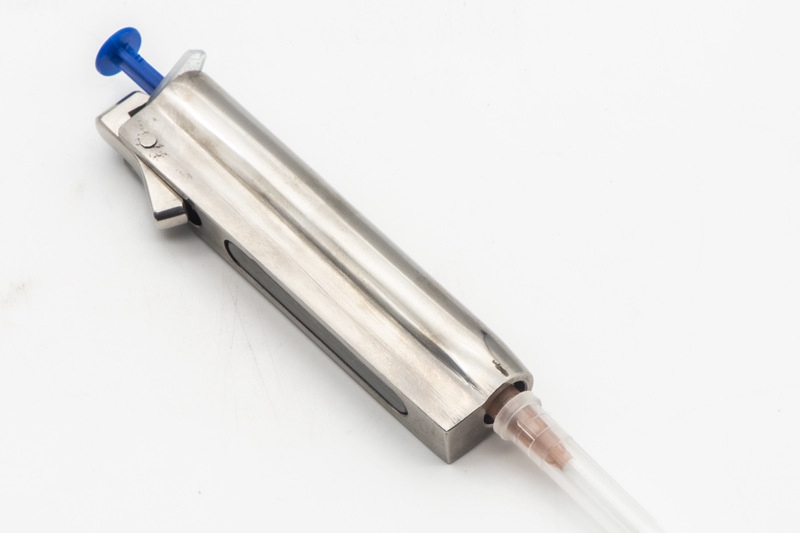
Diagnostic Equipment:
Application: MIM produces components in diagnostic equipment, such as imaging devices and biopsy tools.
Significance: The high complexity achievable with MIM contributes to the accuracy and efficiency of diagnostic procedures, improving overall patient care.
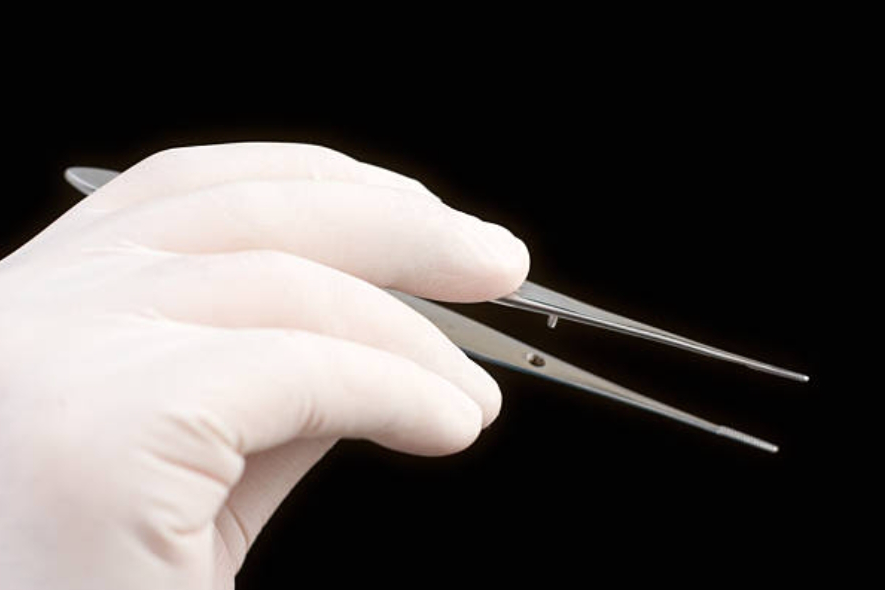
Metal injection molding (MIM) has revolutionized the production of biopsy tools by offering enhanced capabilities and material options. Commonly used materials in MIM for biopsy tools include stainless steel, titanium alloys, and cobalt-chromium alloys. These materials are chosen for their high strength, corrosion resistance, and biocompatibility, ensuring durability and compatibility within the human body. MIM enables intricate designs with tight tolerances, which is crucial for crafting precise biopsy tools. The process achieves exceptional detail, allowing for complex geometries, micro features, and fine surface finishes, vital for accurate tissue sampling.
The advantages of using MIM for biopsy tools are manifold. It offers cost-efficiency by reducing material waste and machining requirements, resulting in up to 90% material utilization. MIM's high production volumes enable economies of scale, driving down per-piece costs. Moreover, MIM's excellent repeatability ensures consistent tool quality, achieving tolerances as tight as ±0.003 inches (0.076 mm). These tools exhibit superior mechanical properties, including high hardness (up to 45 HRC), ensuring prolonged tool life and reliability during medical procedures. This underscores MIM's pivotal role in producing advanced, high-performance biopsy tools.
Cardiovascular Devices:
Application: MIM produces components for cardiovascular devices, including stents.
Significance: The strength and biocompatibility of MIM materials are crucial for ensuring the success and long-term performance of cardiovascular implants, contributing to patient well-being.
Metal Injection Molding (MIM) is a transformative method in crafting intricate parts for cardiovascular devices, employing a range of materials tailored to meet the stringent demands of this specialized field. Commonly utilized materials in MIM for cardiovascular devices include biocompatible alloys such as titanium, stainless steel, and cobalt-chromium. These materials provide a combination of high strength, corrosion resistance, and compatibility within the human body, ensuring the longevity and reliability of the cardiovascular components.
The advantages of employing MIM in producing cardiovascular device parts are substantial. MIM's capability to produce complex geometries and intricate designs is pivotal in crafting components like stents and implantable devices. The process facilitates cost-effectiveness by minimizing material waste, achieving up to 95% material utilization. With tolerances as precise as ±0.002 inches (0.051 mm), MIM-produced cardiovascular parts ensure consistency and accuracy, contributing to these critical medical components' overall efficiency and reliability.

Ophthalmic Applications:
Application: MIM manufactures ophthalmic device components, including intraocular lens frames.
Significance: MIM's precision and versatility play a critical role in meeting the stringent requirements of the ophthalmic industry, ensuring the optimal performance of vision-correcting devices.

Metal injection molding (MIM) intraocular lens frames commonly employ materials like titanium alloys due to their exceptional biocompatibility, corrosion resistance, and high strength-to-weight ratio. Titanium alloys, such as Ti-6Al-4V, offer unique properties ideal for intraocular lens frames. They exhibit a low modulus of elasticity, ensuring minimal stress shielding and reduced risk of postoperative complications. Moreover, their biocompatibility significantly reduces the risk of allergic reactions or inflammation, which is crucial for long-term implantation within the eye. The MIM process allows for intricate designs with precise tolerances, ensuring lens frame uniformity and precise alignment of optical components, enhancing patient visual outcomes.
The advantages of utilizing MIM for intraocular lens frames extend beyond material selection. The MIM process enables the production of complex geometries and intricate features with tight tolerances, ensuring consistent quality across large production runs. With MIM, Neway can achieve high production efficiency and cost-effectiveness by minimizing material waste and secondary operations. The process facilitates the creation of thin walls and fine details crucial for lightweight yet durable intraocular lens frames, meeting stringent industry standards with tolerances as low as ±0.002 inches, ensuring optimal performance and patient safety.
Prosthetics:
Application: MIM is used in the production of components for prosthetics, including connectors and joints.
Significance: MIM's ability to produce intricate and high-strength components ensures prosthetic devices' optimal functionality and comfort, contributing to the quality of life for individuals with limb loss.
Metal injection molding (MIM) is pivotal in producing prosthetic connectors and joints, utilizing common materials such as stainless steel for their robust mechanical properties and corrosion resistance. Stainless steel alloys, like 316L, provide an optimal balance of strength and durability required for prosthetic components subjected to dynamic forces. The MIM process allows for creating intricate connector designs, ensuring precise fits and reducing the need for additional machining. It enhances the overall structural integrity of prosthetics, providing users with reliable and long-lasting solutions.
The advantages of MIM extend beyond material selection, offering unparalleled efficiency in producing complex geometries for prosthetic connectors and joints. Neway's utilization of MIM allows for intricate detailing with tight tolerances, ensuring a seamless integration of components and enhanced biomechanical performance. The MIM process also promotes cost-effectiveness by minimizing material waste and reducing the need for secondary operations. With tolerances reaching ±0.001 inches, Neway achieves a high level of precision in prosthetic connector production, ultimately contributing to improved functionality and comfort for prosthetic users.
